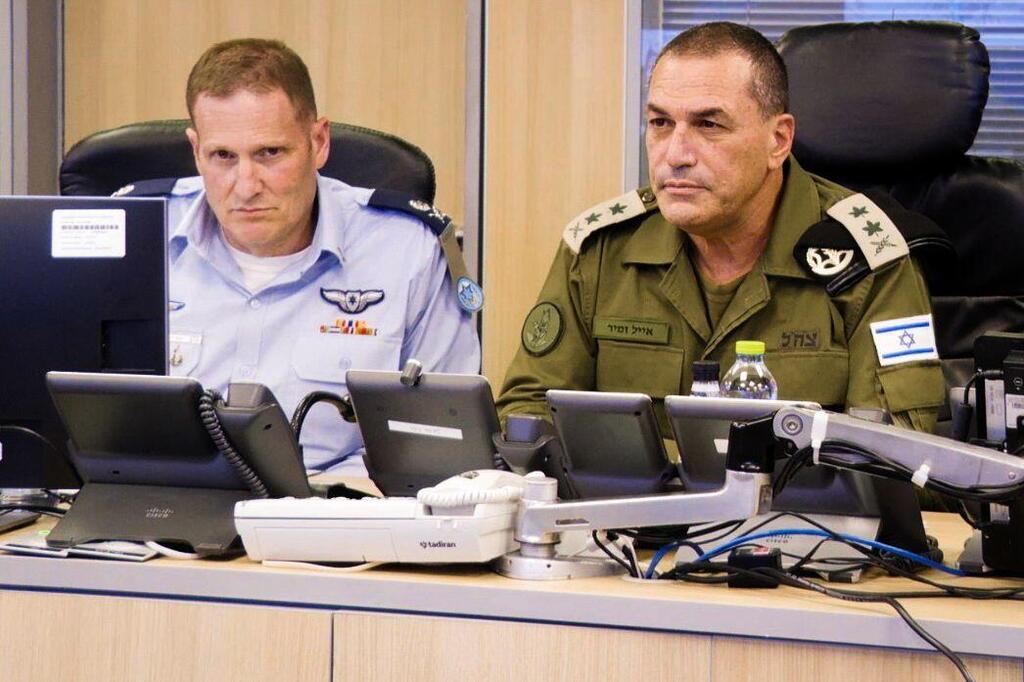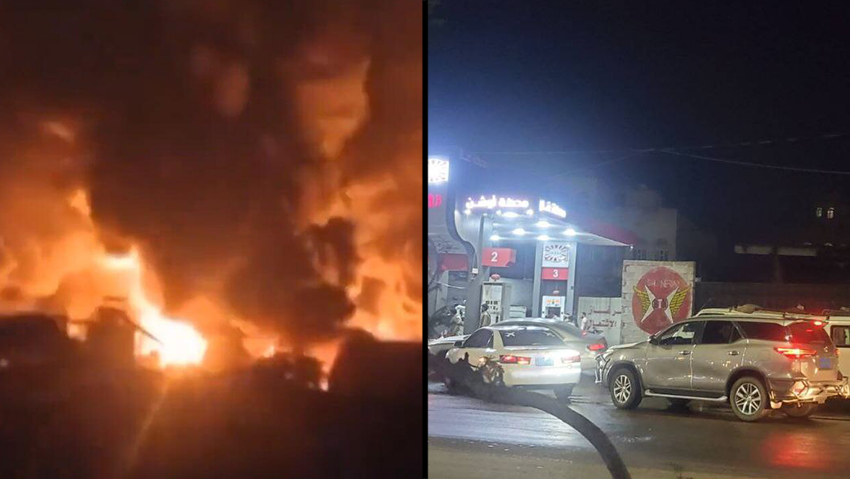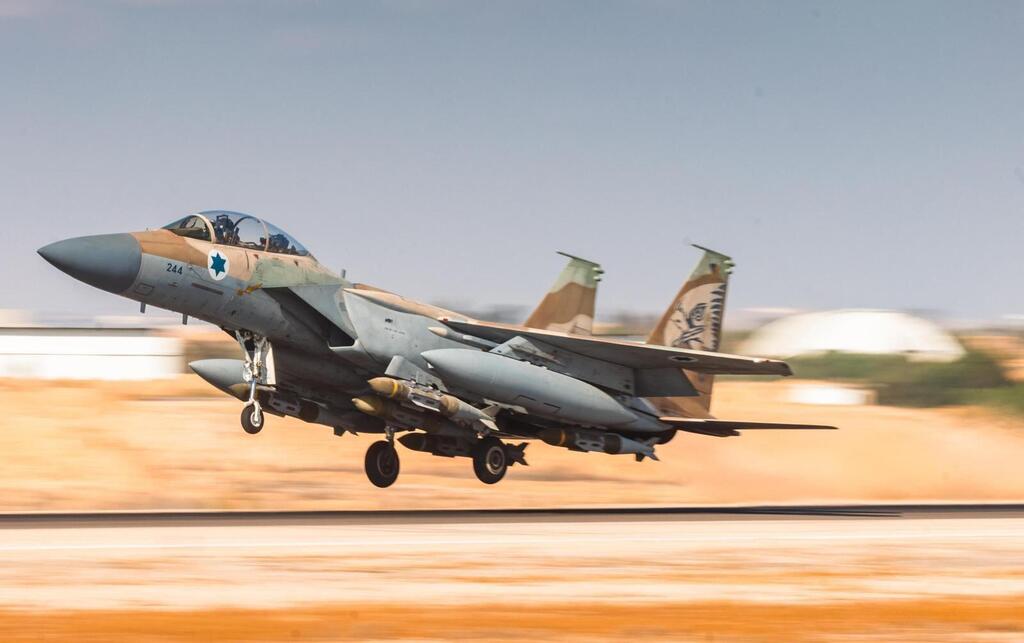The Yemen Petroleum Company announced Tuesday it's operating under an emergency plan at all its stations and affiliated sites due to "continued strikes in the country." This comes amid an expanded U.S. military campaign against the Houthis in Yemen and following Israeli airstrikes in the port city of Hodeidah Monday night.
The company said the plan is intended to manage current fuel supplies until tankers can resume docking and unloading. It blamed ongoing U.S. strikes on its facilities for the disruption. Reports also confirmed the U.S. carried out further attacks in the Hodeidah port area on Monday.
Israeli strike in Yemen
"U.S. enemy aircraft struck the Ras Issa oil port in Hodeidah province on April 17. Despite major damage, our technical teams restored operations within five days," the company said. "Employees kept working under threat of airstrikes, but the U.S. renewed attacks on April 25, once again halting operations."
The company added that repair efforts began the next day, only to be interrupted again by another round of airstrikes that evening. Since then, it claimed, "U.S. aircraft have targeted the port nearly every day in a persistent attempt to block reopening efforts." The company also said that it had taken alternative measures to allow direct fuel offloading from ships despite Israeli strikes last year that destroyed its oil tanks.
In recent days, public concern has mounted in Yemen over the destruction of oil infrastructure in Hodeidah and Ras Issa. Even before Monday night's strikes, a source in Sana'a told Ynet there were growing fears of a fuel crisis. Long lines were seen at gas stations, many of which were later closed — apparently to prevent unrest and regroup.
Following Monday’s Israeli strikes, the same source said Yemen had been bracing for retaliation after a Houthi missile exploded at Ben Gurion Airport. “Hodeidah is a lifeline for all Yemenis, not just the Houthis,” he said.
“This isn’t just about the Houthis—it affects everyone. You’re [Israel] bombing everything, like it’s revenge. People are afraid. When Israel strikes, it destroys everything. And today, the worst happened — there’s no fuel. It’s gone. Even though the company issued a statement, we’re tired of war. We’re exhausted.”
Get the Ynetnews app on your smartphone: Google Play: https://bit.ly/4eJ37pE | Apple App Store: https://bit.ly/3ZL7iNv
Meanwhile, Egypt’s Al-Qahera News reported that Israeli strikes "completely destroyed one dock at Hodeidah port and damaged 70% of four others,” effectively shutting the port down. The report has not been confirmed by Yemeni officials.
Hodeidah was not the only target Monday night. The Israeli Air Force also struck a cement plant in Bajil, which the IDF described as “a significant economic resource for the Houthis. Moreover, it is used for the construction of underground tunnels and terrorist infrastructure for the terrorist regime.”
Footage released by the Houthis showed a fire at the plant, though the facility appeared to remain largely intact.
Footage of fire at Bajil factory in Yemen
The Israeli operation was coordinated with U.S. forces. According to the IDF, around 20 fighter jets dropped approximately 50 munitions during the raid. “The IDF struck dozens of terrorist targets of the Houthi regime in and around the Red Sea port of Hodeidah, about 2,000 kilometers (1,240 miles) from Israeli territory,” the military said.
An Israeli security source confirmed the attack was synchronized with a U.S. strike and added: “We destroyed the Hodeidah port and cement plants used for weapons production. This was a powerful strike and not the last one. No more games.”
3 View gallery


Israeli Air Force commander Maj. Gen. Tomer Bar and IDF Chief of Staff Lt. Gen. Eyal Zamir
(Photo: IDF Spokesperson's Unit)
Following the attack, Houthi Supreme Political Council member Mohammed al-Bukhaiti warned, “Escalation will be met with escalation until the strikes on Gaza stop. Our missile capabilities are secure. We’re serious about enforcing an aerial blockade on Israel. The strike on Ben Gurion Airport was a warning.”
Senior Houthi official Nasruddin Amer added, “The aggressive Zionist-American strikes on civilian infrastructure won’t affect our military operations or the morale of our people, who take to the streets every week. Yemen’s position will escalate. The air and sea blockade on Israel won’t be lifted until the aggression and siege on Gaza end.”
Another Houthi figure, Ali al-Qahoum, said: “The consequences of Israel’s strike will be severe for the Zionists. We will not back down. Yemen’s response is coming — and will be aggressive.”







